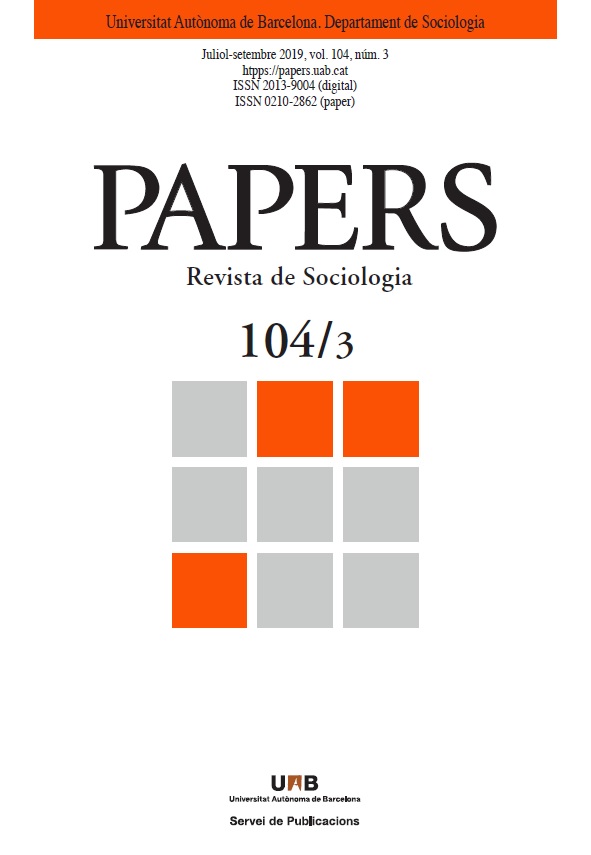Networks of Care among Families with Internationally Adopted Children in Spain
Article Sidebar

PDF
uab, Figure_1.jpg (Català)
uab, figure_2.jpg (Català)
uab, figure_3.jpg (Català)
uab, figure_4.jpg (Català)
uab, Figure-1.xlsx (Català)
uab, TABLE 1.docx (Català)
uab, 2584-9840-2-ED.zip (Català)
Main Article Content
Jorge Grau Rebollo
Universitat Autònoma de Barcelona
José Luis Molina González
This study examines the relevance of informal support networks in adoptive parenting (“networks of care”). We try to go beyond the potential difficulties and specific stressors involved in International Adoption (IA) processes and the relevance of the interaction of both formal and informal support networks, since the role of informal personal grids in adoptive care has not been developed in depth so far. Hence, in order to identify the main factors that help determine the size, density, and effectiveness of support networks in everyday child care, we collected both qualitative and quantitative data from 50 adoptive families selected from a previous online survey (n = 477). Considering the distribution of responsibilities over children, the preferred information sources, and levels of concern among interviewees, we were able to group patterns of similarities in three clusters or profiles, which may help to better understand care practices among adoptive parents within ordinary situations. In this light, the data analysis shows that larger and denser networks do not necessarily mean better support. Rather, other factors such as the strength and duration of the adoptive project lead to more effective grids of care providers. We contend that an adequate knowledge of such configurations may be used by professionals and policymakers to facilitate proactive interventions in potentially vulnerable scenarios.
Keywords
Child care issues, family, adoption, parenting & parenthood, social support networks
Article Details
How to Cite
Grau Rebollo, Jorge; and Molina González, José Luis. “Networks of Care among Families with Internationally Adopted Children in Spain”. Papers: revista de sociologia, vol.VOL 104, no. 3, pp. 525-43, https://raco.cat/index.php/Papers/article/view/358962.